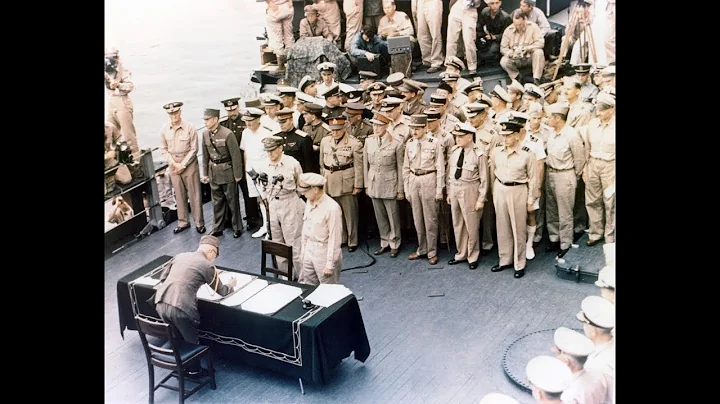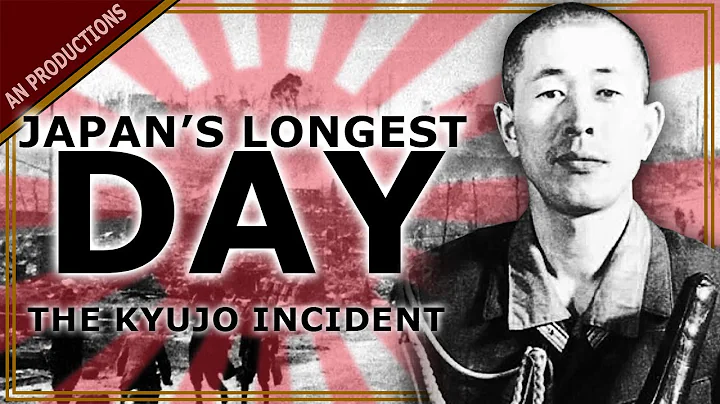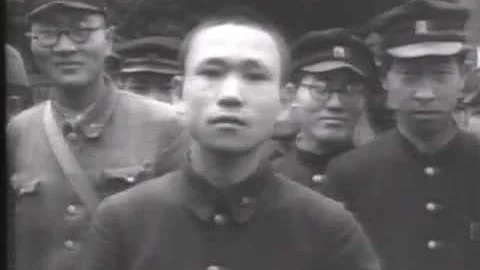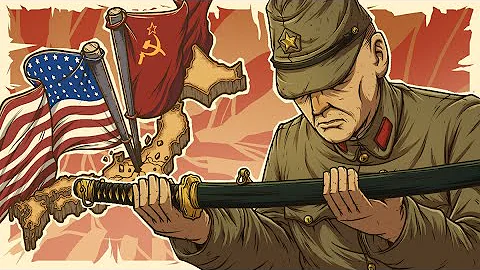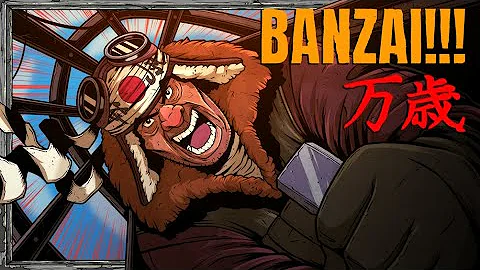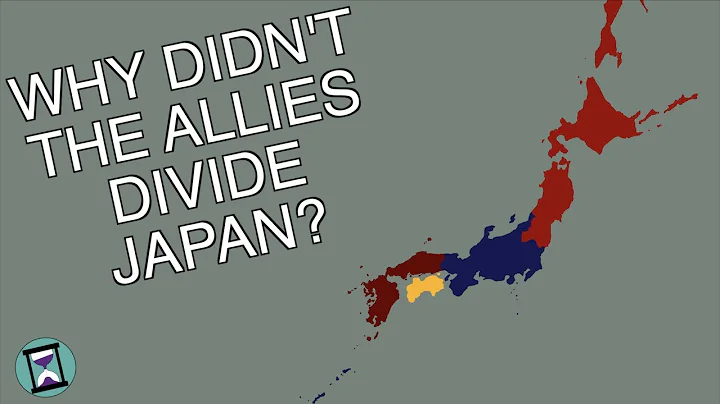After the end of World War II , the United States implemented a separate occupation of Japan and became the bridgehead for the United States to resist the Soviet Union.
Japan has officially become the little brother of the United States. Since
is the younger brother, he can also be regarded as one of our own.
Japan, which was rebuilt from the ruins, signed the " Japan-US Security Treaty " with humiliation, but also received a large number of arms orders from the United States.
Japan's heavy industry recovered rapidly thanks to the rice rewarded by American dad.
In 1970, Japan's GDP ranked second after the United States, becoming the world's second largest economy.
The strong rise of Japan has had a major impact on the domestic manufacturing industry in the United States.
After destroying the Latin American economy, the United States finally targeted Japan this time.

Japan, which was rebuilt after the war, was holding its breath to develop its economy.
relies on advanced technology to produce high-quality and affordable products and distribute them all over the world. After
earned a large amount of foreign exchange, it fed back the domestic industry and completed industrial upgrading step by step. The speed of economic development can only be described as rapid.
But the ambitious Japanese are not satisfied with just producing cheap goods, they want to make a lot of money. How can
make big money?
makes cars, chips, TVs, steel, and machine tools.
Especially car manufacturing, it almost killed the American auto industry.
I wrote in the second article of the past in the United States that the United States is frantically suppressing the purchase price of crude oil in the Middle East oil-producing countries, and does not want to give the soup to the locals.
So on a dark and stormy night, the oil-producing countries in the Middle East united and established the " Organization of the Petroleum Exporting Countries ", referred to as " OPEC ".
They issued a joint statement:
"We set the price of our oil ourselves."
In order to retaliate against the United States, they began to raise oil prices crazily, and at the same time imposed an oil embargo on the United States, Japan and Western Europe .
This move not only made the Middle East countries transition from abject poverty to extreme wealth overnight, but also triggered an oil crisis .
On October 16, 1973, the first oil crisis broke out.
The skyrocketing oil prices have caused heavy losses to the United States, which relies on cheap oil.
U.S. industrial production fell by 14%, and GDP fell by 4.7%.
 979 ushered in the second oil crisis.
979 ushered in the second oil crisis.
The two oil crises were a disaster for the American automobile manufacturing industry.
However, the two oil crises gave Japanese automobiles a chance to turn around.
Today, everyone often talks about buying and Nissan if they want to save fuel.
hated the pain points of American cars at the time.

Since then, Japanese cars have been invincible and invincible, sweeping across Europe and the United States. Exports have soared, and the squeezed European and American local car brands have suffered miserably.
By 1980, Japanese cars surpassed the United States and became the world's number one in sales.
In the world's manufacturing share, Japan accounts for 20% of the semiconductor, 30% of the automobile and 50% of the machine tool market.
Gods will kill gods if they stand in the way, Buddhas will kill if they stand in the way of Buddha. The Japanese are killing like crazy.
In the financial market, Japan was still the largest creditor of the United States at that time, and the amount of funds it held accounted for 25% of the trading volume of the New York Stock Exchange .
Also in 1980, the U.S.-Japan trade deficit reached US$50 billion.
Countless industrial areas in the United States have suffered ruthless blows, a large number of workers have lost their jobs, and many companies have no choice but to go bankrupt.
The red-eyed Japan decided to kill them all without any thought of giving the boss any face or a way to survive.
In addition to the heavy industry, Japan has also reached out to the light industry market. TVs, stereos, refrigerators, etc. have launched an all-out army to madly seize the US market.
The Americans who had no way out were angry and started an "anti-Japan demonstration", smashing cars, refrigerators, and TVs, as long as they were Japanese brands.
Japan: Brother, why can’t you afford it?
United States: Brother, you are a bit arrogant.
Therefore, in order to resurrect the "strong United States", the United States decided to retaliate against Japan.
The first is to increase tariffs and restrict the export of Japanese products.
Then launched an antitrust investigation into Japanese cars and other electronic products, and banned Japanese companies from acquiring technology industries.
Finally, Japanese business executives were arrested on suspicion of stealing IBM technology.
Friends, does this trick used by the United States on Japan in the 1980s sound familiar?
Does it seem like it happened yesterday?
can only say that if you can't play it, then you are an old scoundrel.

Back to Japan, Japan has a clear understanding of its status in the face of a series of measures taken by the United States.
Stand at attention when being beaten. There is no need to struggle, because it is useless.
Japan has been very cooperative and actively restricted exports, lowered tariffs on its own, and proactively opened its market to the United States.
But Japan’s previous momentum was too strong. Even if the United States puts the handbrake on it, it still cannot stop its progress.
For a time, the rogue methods of the United States did not reverse the direct trade deficit between the United States and Japan.
The United States realized that these methods were useless, so it came up with more sinister tricks.
The United States led the United Kingdom, France, Germany and Japan to form a game in their own hotels.
At the dinner table, the Americans said: "Brothers, my brother has been having a hard time recently. Otherwise, your currency will appreciate and leave some way for my family's industry to survive."
Although Britain, France and Germany were unwilling to do so, they also cooperated on the surface. .
only Japan has no say, because he is the younger brother of the United States, and what the older brothers say is what he says.
In September 1985, the United States, Britain, France, Germany and Japan signed the " Plaza Agreement " at the Plaza Hotel in New York. The main content of
is: Let the currencies of Britain, France, Germany and Japan appreciate.

Britain, France and Germany, which are openly cooperating with the United States, are just providing a stage for the United States to watch its own show. Therefore, the currencies of the three countries have not appreciated, and the United States does not care.
On the contrary, Japan, where the big brother is acting, is the real target that the United States wants to deal with.
As the younger brother, Japan cannot act like Britain, France and Germany. It can only listen to the boss and let the yen appreciate.
On the surface, the United States’ purpose is to make Japanese products more expensive, lose its export advantage, and save American products.
The Japanese government feels that the appreciation of the yen will not shake the Japanese economy. I will listen to you, rise!
But in fact, the real intention of the United States is to lay an economic trap for Japan, attack Japan's finance, and completely destroy the Japanese economy just like it killed Latin American countries. Japan will have to spit out all the benefits it has gained.

But the fact is that after the appreciation of the yen, it did not develop according to the script expected by the United States.
Because the Japanese are so ruthless, they try their best to reduce costs in order to make money. Even if the yen appreciates, Japanese products can still earn profits from exports.
In addition, Japanese people also have a high sense of risk and do not speculate in stocks or real estate.
Although it is said that the higher the risk, the higher the return, but I don't like taking risks and would rather not have high returns.
In this way, even if Japan liberalizes finance and Sichuan, the giants of Wall Street in the United States will have nothing to do with the Japanese, and they will not be fooled.
Seeing that the United States still did not take advantage, US President Reagan was so anxious that his hair turned white.
then continued to force Japan to cut taxes and expand domestic demand.
allows Japanese people to have more spare money and buy more American products.
Japan followed suit and implemented a new policy: reducing taxes by 1 trillion yen and investing 5 trillion yen to expand domestic demand.
Japan finally collapsed.
Japanese bosses who already have huge sums of money and nowhere to spend it, see the manufacturing industry profits getting lower and lower, and feel that they have nothing to do, so they should invest their money in the stock market and property market. Anyway, money is idle. With.
How did Latin American countries die? Can’t the Japanese see it?
At that time, American capital invested money in real estate and stock markets in Latin American countries, and stock prices and house prices soared. The locals were instantly jealous, and they all went into the business and became leeks.
Just look at the leek, The Federal Reserve announced an interest rate hike , and the people of Latin America went bankrupt overnight.
The Japanese people have followed the old path of the Latin American people.
Ignore the lessons learned from the past and play into the hands of the Americans.

The Japanese began to invest huge sums of money in the financial market, and no one thought about starting a career anymore.
A large amount of money entered the stock market and property market, and the situation began to get out of control.
The capital giants in the United States have been waiting for this moment for too long, and they started to enter the market en masse, blowing up Japan's financial bubble.
From 1984 to 1989, Japanese housing prices tripled in five years, and the stock market rose 368%.
Tokyo has fallen into madness, and the lost Japanese feel that they have endless money.
When everyone is drunk, there are also people who are sober.
Japanese economist Yukio Noguchi felt that something was wrong: "It is an obvious anomaly, but everyone takes it for granted."
In 1987, Yukio Noguchi published his article in a magazine with the title "Bubble-Inflated Land Prices."

However, the luxurious life drove the Japanese into madness. They did not care about Noguchi Yukio's concerns and ignored his warnings.
The Japanese even launched a crazy "acquisition plan for the United States". The Rockefeller Building, Universal Pictures, Columbia Pictures, , etc. were successively acquired by the Japanese.
More than US$600 billion in assets are controlled by the Japanese.
Japan stands at the forefront of the times, blowing in the strong wind.
Eudipides said: "If God wants it to perish, he must first make it crazy."
The crazy Japanese don't know that their boss, the United States, is already laughing from ear to ear.
Starting in 1989, the Federal Reserve repeated the same tactics it used on Latin American countries 10 years ago and began to raise interest rates.
Then a familiar scene appeared again, and a large amount of hot money began to flee the Japanese property market and stock market.
But unlike the Latin American people who were quickly wiped out, Japan is too prosperous and rich, and the interest rate hike will not kill Japan for a while.
The United States had no choice but to resort to its special move, which was to wipe out Japan's economic lifeline.
The United States called Japan and said it would sign a gambling agreement . The main content is:
The United States bets that the Japanese stock market will fall, and Japan bets that the Japanese stock market will rise.
If the Japanese stock market index rises, Japan wins;
If the Japanese stock market index falls, the United States wins.
In order to stabilize Japan, the United States will pay Japan a sum of money no matter whether it rises or falls, giving Japan the illusion of guaranteed harvests despite droughts and floods.
At that time, the Japanese stock market was like Red Bull on stimulants. It was so bullish that the Japanese took it for granted that it would not fall at all.
Therefore, the United States did not force it, but Japan signed it on its own.

As a result, a picture of the great unity of European and American capital appeared.
They jointly suppressed the Japanese stock market, causing the yen to plummet 70%.
Japan’s economy collapsed.
American companies that had been acquired by Japan, just as the United States originally planned, all spat out, and many Japanese companies went bankrupt one after another, and were acquired by European and American capital bargain hunting .
Countless Japanese people walked up to the rooftop that day and ended their lives with doubts and unwillingness.
Japan's economy has been stuck in stagnation for 20 years, and it still lives in the shadow of the original.
The United States "lost ten years" to Latin American countries, and "lost twenty years" to its little brother Japan.
It is true justice to destroy relatives.
took care of its younger brother Japan, and the United States began to turn its attention to Southeast Asia.
And the economic crisis in Japan is like overturned dominoes, starting to move to Southeast Asia.
A Southeast Asian financial crisis sweeping across Asia and affecting the world is about to begin.
